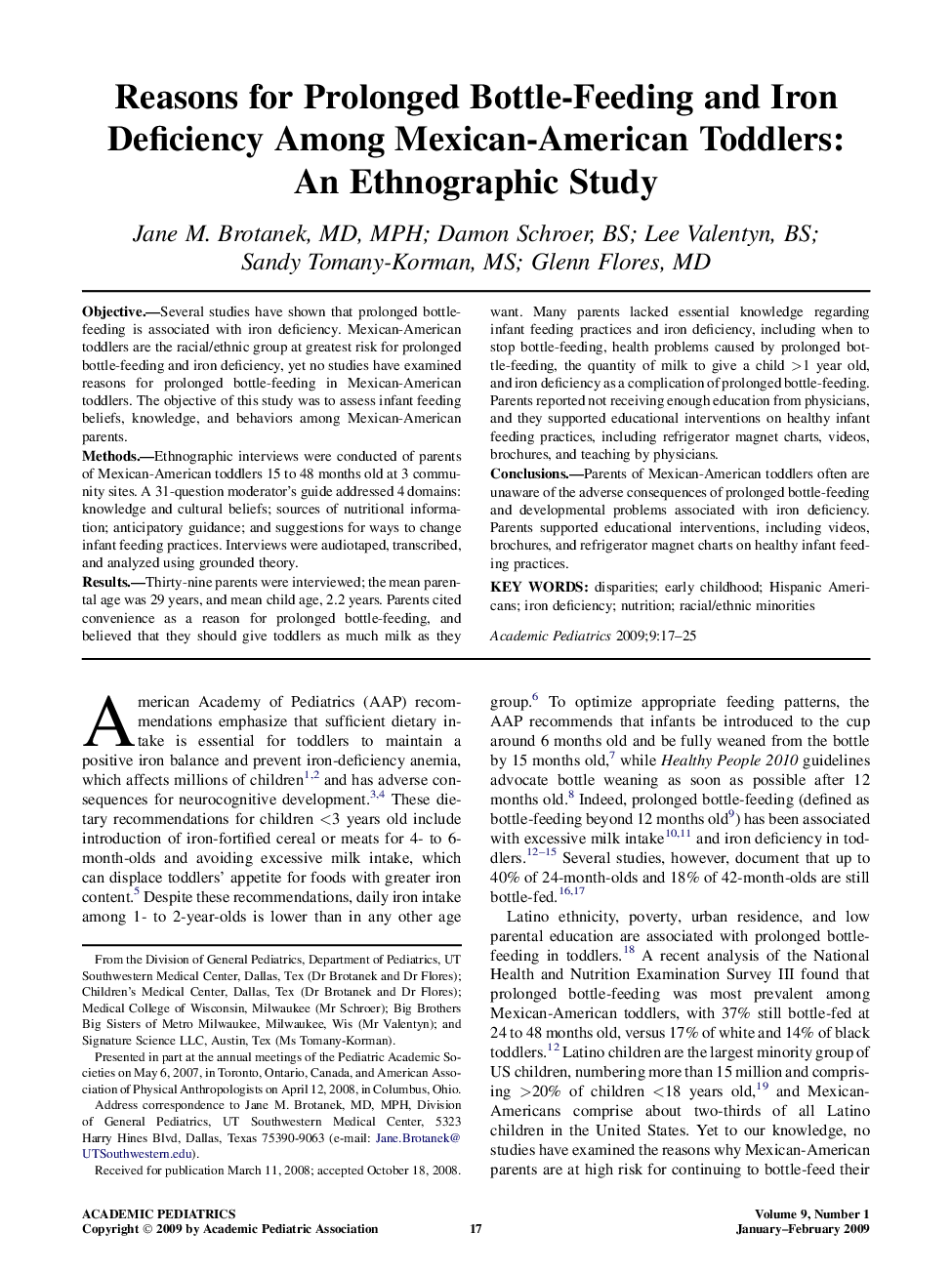| Article ID | Journal | Published Year | Pages | File Type |
|---|---|---|---|---|
| 4140130 | Academic Pediatrics | 2009 | 9 Pages |
ObjectiveSeveral studies have shown that prolonged bottle-feeding is associated with iron deficiency. Mexican-American toddlers are the racial/ethnic group at greatest risk for prolonged bottle-feeding and iron deficiency, yet no studies have examined reasons for prolonged bottle-feeding in Mexican-American toddlers. The objective of this study was to assess infant feeding beliefs, knowledge, and behaviors among Mexican-American parents.MethodsEthnographic interviews were conducted of parents of Mexican-American toddlers 15 to 48 months old at 3 community sites. A 31-question moderator's guide addressed 4 domains: knowledge and cultural beliefs; sources of nutritional information; anticipatory guidance; and suggestions for ways to change infant feeding practices. Interviews were audiotaped, transcribed, and analyzed using grounded theory.ResultsThirty-nine parents were interviewed; the mean parental age was 29 years, and mean child age, 2.2 years. Parents cited convenience as a reason for prolonged bottle-feeding, and believed that they should give toddlers as much milk as they want. Many parents lacked essential knowledge regarding infant feeding practices and iron deficiency, including when to stop bottle-feeding, health problems caused by prolonged bottle-feeding, the quantity of milk to give a child >1 year old, and iron deficiency as a complication of prolonged bottle-feeding. Parents reported not receiving enough education from physicians, and they supported educational interventions on healthy infant feeding practices, including refrigerator magnet charts, videos, brochures, and teaching by physicians.ConclusionsParents of Mexican-American toddlers often are unaware of the adverse consequences of prolonged bottle-feeding and developmental problems associated with iron deficiency. Parents supported educational interventions, including videos, brochures, and refrigerator magnet charts on healthy infant feeding practices.
